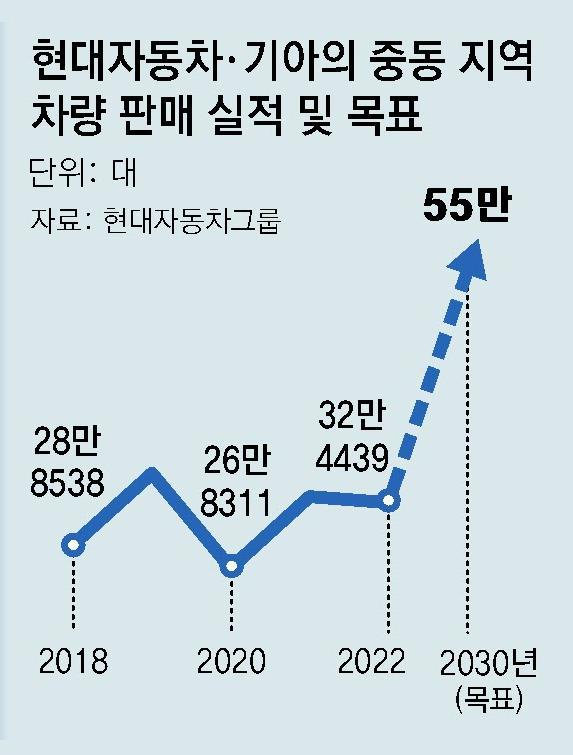Hyundai Motor Company launches ‘hydrogen mobility’ in Saudi Arabia
Signed a business agreement with local bus companies
KG Mobility signed a parts supply contract
“Electric and hydrogen vehicles are expanding in the oil-producing Middle East as well.”
The domestic automobile industry has recently been actively increasing investment in the Middle East. This is because the market for electric and hydrogen vehicles is expanding in the oil-producing Middle East, and demand for vehicles is expected to continue to increase as women are allowed to drive in countries such as Saudi Arabia.
Hyundai Motor Company announced on the 22nd (local time) that it signed a business agreement (MOU) with Air Products Quadra, SAPTCO, and Korea Automobile Research Institute in Riyadh, the capital of Saudi Arabia, to build and develop the Saudi hydrogen mobility ecosystem. Air Products Quad is a development investment company in the Middle East, and SAPTCO is a Saudi public transportation company. This is an MOU to build a hydrogen mobility ecosystem in the Middle East, such as Hyundai Motor Company selling and leasing hydrogen mobility to SAPTCO.
The reason oil-producing Middle Eastern countries are increasing investment in eco-friendly vehicles is to break away from their oil-dependent economic structure. Because blue hydrogen produces hydrogen using carbon dioxide capture technology, Middle Eastern countries are also actively investing in it. By joining hands with Hyundai Motor Company, the world’s No. 1 hydrogen car company, we are expecting a synergy effect in expanding the hydrogen economy.

According to the automobile industry, a total of 2.29 million vehicles were sold in the Middle East last year. Hyundai Motor Company had a market share of 8.0% (182,934 units) and Kia Motors had a 6.2% market share (141,505 units). Hyundai Motor Company and Kia Motors have set a goal of selling 550,000 units in the Middle East by 2030. The plan is to increase sales by an average of 6.8% per year starting this year and take a 20% market share by 2030. To achieve its goal, Hyundai Motor Company also signed a joint venture agreement with Saudi Arabia’s sovereign wealth fund (PIF) on the 22nd to establish a semi-finished product assembly (CKD) plant. We plan to produce both electric vehicles and internal combustion engine vehicles with the goal of mass production in 2026. It is expected to be Korea’s first automobile factory in the Middle East.
The fact that the Korean government concluded negotiations on the Comprehensive Economic Partnership Agreement (CEPA) with the United Arab Emirates (UAE) this month and that automobile tariffs were eliminated is also a green light for business expansion in the Middle East. The UAE tariff on automobiles is currently 5%, and this tariff has been decided to be abolished within 10 years. Since the UAE has not signed trade agreements with Japan, the United States, or the European Union (EU), it is expected to serve as a major opportunity for Korea to dominate the market.
KG Mobility (formerly Ssangyong Motor) also announced on the 23rd that it signed a parts supply agreement with Saudi National Automobiles (SNAM). The production scale is a total of 169,000 units, including Rexton Sports & Khan, after mass production began. KG Mobility signed an export contract with UAE’s NGT early this year and signed a contract to export 7,000 units this year.
Some analyzes say that the expansion of Korean automobile companies into the Middle East is closely related to the growth of Korea’s national brand. Joo-yeon Ha, Deputy Director of the Regional Cooperation Office of the Korea International Trade Association, said, “Since the ‘Middle East boom’ a long time ago, trust in Korean companies and businesses has been steadily building as companies in the construction, infrastructure, and defense industries have entered the Middle East.” “This is why we actively cooperate in business.”
Source: Donga
Mark Jones is a world traveler and journalist for News Rebeat. With a curious mind and a love of adventure, Mark brings a unique perspective to the latest global events and provides in-depth and thought-provoking coverage of the world at large.